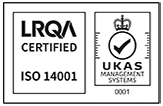
Fly tipping is a long-standing problem throughout the UK. In 2016, we discussed how fly tipping ruins our streets and countryside. Since then, the situation has further declined. Critics blame low resourcing, lack of government support and ineffective fines, but the most recent issues have been caused by the Coronavirus crisis.
The lockdown impact
When the UK went into lockdown in March 2020, the rate of fly tipping soared by 300 per cent. Researchers suggested that because of the closure of rubbish tips, people had nowhere to take their unwanted goods, so rubbish was simply dumped. The problem was exacerbated because households were using their time in lockdown to sort out their homes, embark on home renovation projects, garden overhauls and wardrobe clear-outs.
Countryside fly tipping
The Woodland Trust has spoken out about the issue of fly tipping in the UK’s forests and countryside. Across their sites alone, the cost of clean-up will be around £134,000. This figure adds to the £1million already spent by the Trust on fly-tipping over the past seven years. The Countryside Alliance has also issued alarming statistics, highlighting that the real cost of fly-tipping lies between £100m and £150m annually, yet pointing out that only 1 in 600 incidents lead to a prosecution.
What can landowners do to stop fly tipping?
Fly tipping doesn’t always take place on publicly owned land. A survey by Farmers Weekly and CLA Insurance found that almost two-thirds of farmers and landowners had been affected by fly-tipping. The National Fly-Tipping Prevention Group provides advice for landowners that have to deal with fly tipped waste, warning them to exercise caution as the waste can be hazardous, and offering tips on how to protect land from illegal dumping.
How can fly tipping be stopped?
Fly tipping is already a criminal offence, punishable with fines of up to £50,000 or five years’ imprisonment. But the threats of penalties don’t appear to be working, as fly tipping is still rising. There doesn’t seem to be an easy solution. Farmers and landowners are in favour of offenders being forced to remove the waste, rather than receiving an unlimited fine. Easier and cheaper disposal of waste needs focus too. Our mini skips are cost-effective and ideal for household clear-outs, but items that cannot go in a skip, such as electrical appliances and white goods, still remain a problem.
To find out more about skip hire in West Sussex and our Energy from Waste Facility, contact Rabbit. Reach us on 01903 762020 or email info@rabbitgroup.co.uk.




